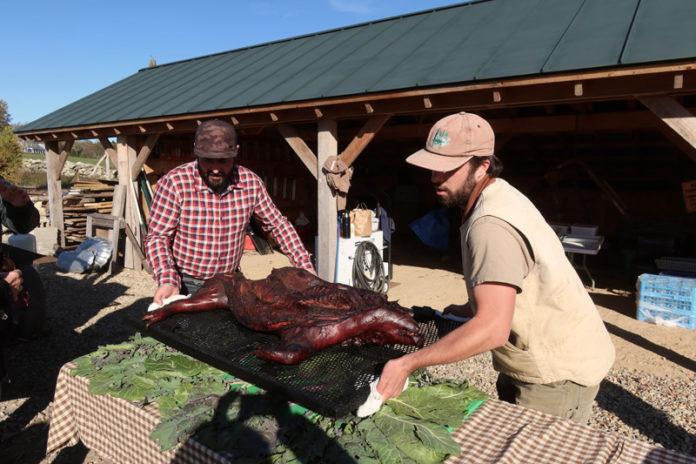After a long, busy summer on the Island, fall sets in on the Vineyard, and the community is ready to gather with friends and family to take a collective breath. Back in the day on the Island, there were some unique events to celebrate fall, such as the Columbus Day Crunch in Aquinnah, and the Thanksgiving Day weekend horse race in West Tisbury. As a kid, I remember these events being quite wild, with plenty of grownups partying with gusto.
As times changed, common sense and safety prevailed, and fall events like those faded. But one farm tradition continues — definitely a lot safer than a car derby and a horse race: the fall pig roast.
As a kid, I remember going to an annual pig roast in West Tisbury, with homemade applesauce, and after a full night of cooking over hot coals, a giant hog was placed on a wooden table and people gathered around filling their plates with tasty, juicy, tender pork. There were also endless potluck dishes strewed about, and always lots of adult beverages. I will never forget how flavorful the pork tasted, something that can be lost in big-factory-farmed pork.
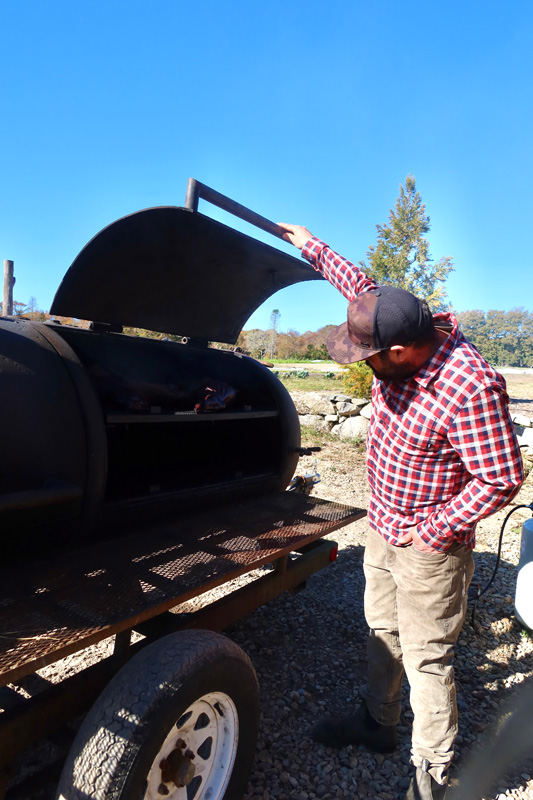
Everett Whiting is the chef and co-owner of the Fish House at the Airport Business Park. Everett grew up raising animals for food on the family’s iconic West Tisbury farm, aptly named Whiting’s Farm. He remembers his uncle, Danny Whiting, was always in charge of the pig roasts when he was young.
“It’s a fall thing for anyone that grows food,” Everett says. “When the weather gets cool, end of the season around November, the pig roast is your harvest reward. Pig roasts are a generational tradition.”
Like anything with value, good things come to those who wait, but for those roasting a whole pig, it is a lot more.
“Doing a pig roast, you get to see the whole night and the morning, it’s a lot of work. I’ve seen some debaucheries,” laughs Everett. “You really need to keep your eye on the process.”
Cultures around the world have been roasting whole pigs over a fire for generations, using a spit over the hot coals or sometimes a metal, two-sided-type cage that encases the pig so that it can be flipped over to cook evenly.
Though he grew up seeing spit-style pig roasts, Everett changed things up when he started, using an indirect barrel wood smoker.
“I started using a smoker when I wanted more control, especially over the weather. An open spit or fire is less reliable, less consistent,” he says.
Also, if you are doing an open fire, you need to pick the right location. With a smoker on a trailer, location and weather become less of an issue. You can do multiple pigs, up to four whole pigs, or 24 chickens at a time.
Everett says depending on the size, it takes about 12 to 14 hours to smoke a whole pig.
The finished pork should be between 210° and 220°, with the temperature taken at the pig’s leg.
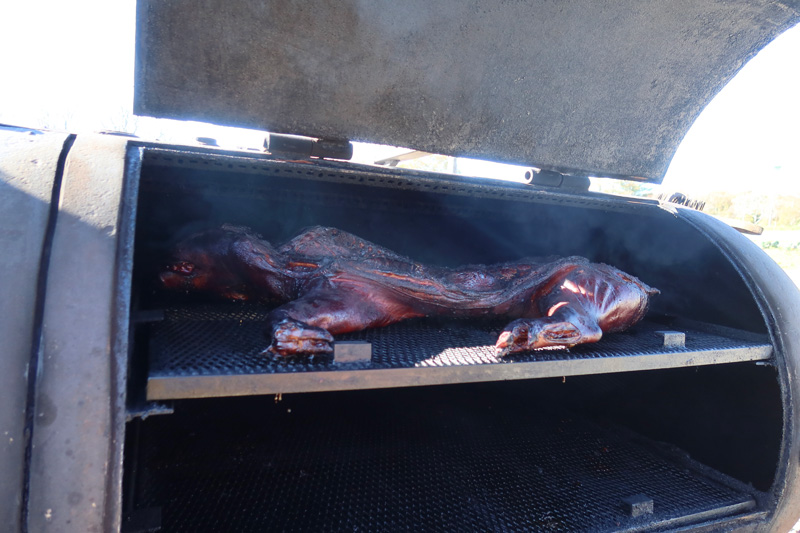
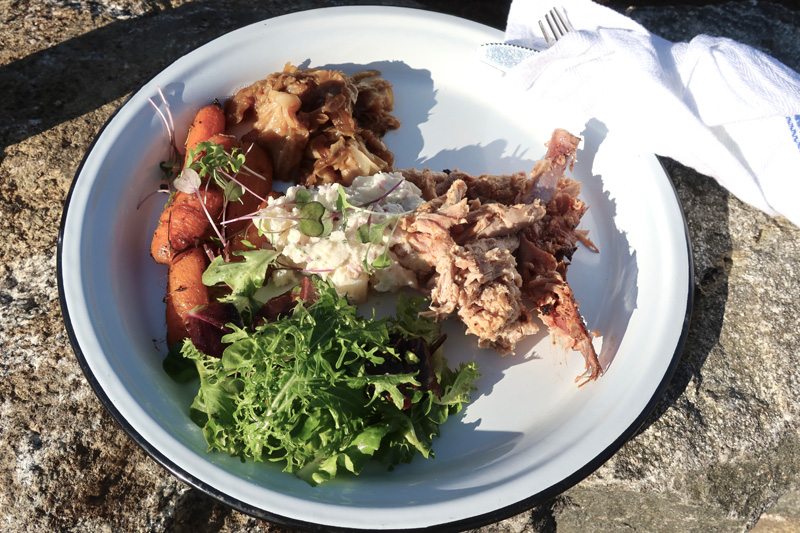
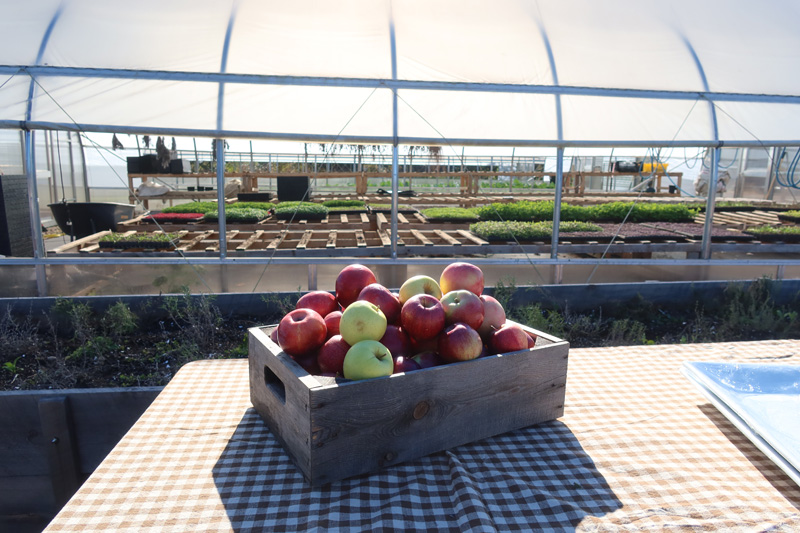
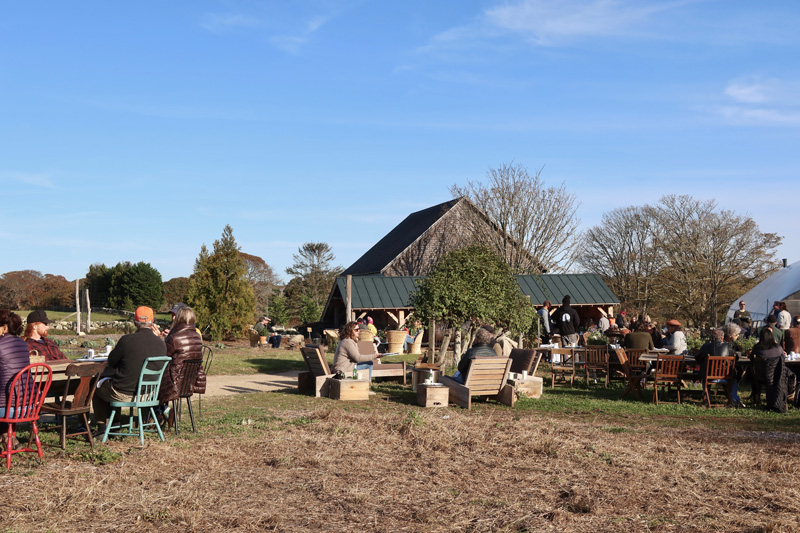
For about eight years, Everett raised his own pigs, and created undeniably one of the favorite food venues at the Martha’s Vineyard Ag Fair — slow-smoked sandwiches served with local vegetable sides. Everett and a crew would smoke up to 24 pigs over the four-day fair.
Raising his own pigs on the farm for the fair was an all-consuming commitment. The size of the pigs would vary, but usually they would end up in the 100-pound range, with runts running around 50 pounds and larger pigs up to 130 pounds.
Before smoking, Everett covers the pig with a dry rub, Texas-style. Spices like paprika, garlic powder, salt, pepper, and some other secret spices are used.
“There are so many variables, so I keep it simple,” Everett explains. Depending on the size of the pig, it is a slow and patient process to roast a pig. “I like cooking with fire in general,” he says. “For me, it’s about the wood — clear, white oak is my preference. My style is a bit different; I cook it a bit hotter, so it doesn’t taste only of smoke.”
With Everett’s work at the Fish House, pig roasts are back to being an end-of-the-season celebration rather than a full-time job.
“I love cooking the Island’s bounty,” Everett says with a smile. “We live in a community rewarded by so many great farms and people that know and appreciate locally grown food.”
















